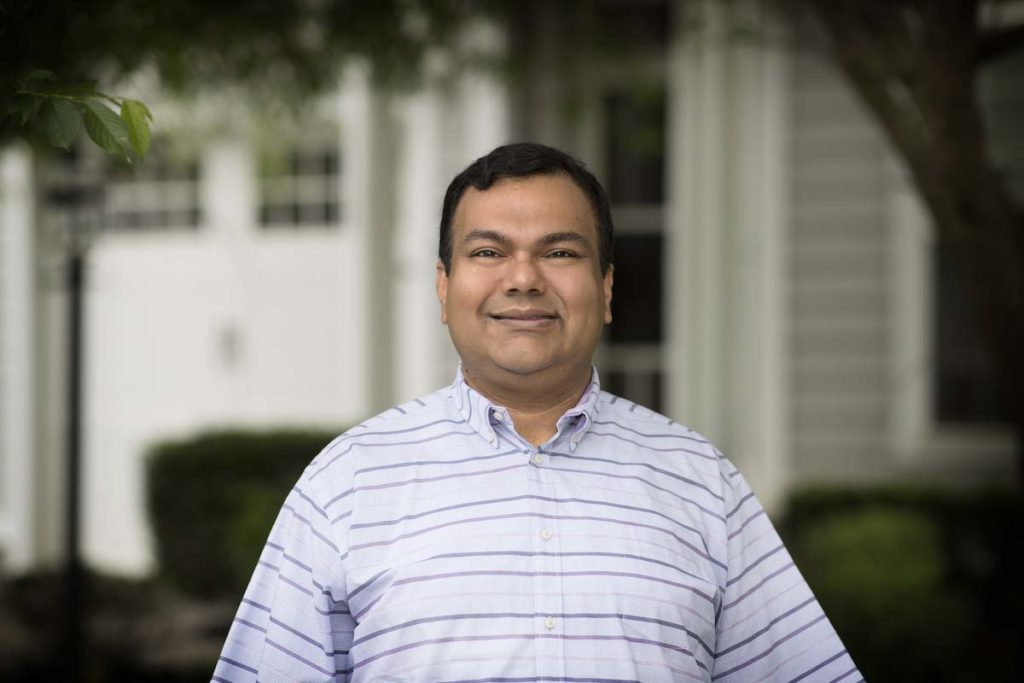Blood pressure medicine helps protect you from having a heart attack or stroke. But it also might help you live longer if you get colon cancer. And if you reach for Pepcid to relieve heartburn, you could be protecting yourself from a bad bout of COVID-19.
These are the kind of fascinating discoveries made by UVA researchers, who comb through thousands of electronic health records. All the researchers say it’s important to remember that more research needs to be done to back up their findings. Still, they show that common drugs may offer some unintended and amazing health benefits.
Do Blood-Pressure Drugs Help Beat Colon Cancer?
High blood pressure is common among people with colorectal (colon) cancer — the #2 cause of death from cancer in the U.S. After reviewing the medical records of almost 14,000 people with colorectal cancer, UVA Cancer Center researchers noticed that those who took their blood-pressure drugs consistently were less likely to die from their cancer.
People who tended to live the longest took common blood pressure medicines — like ACE inhibitors, beta-blockers, and thiazide diuretics. On the other hand, calcium-channel blockers (another type of drug used to lower blood pressure) did not appear to offer similar survival benefits.
“This fascinating research adds to the growing amount of data that even very commonly used drugs can have beneficial effects in ways other than they are prescribed for,” says Paul Kunk, MD, one of three UVA Cancer Center medical oncologists who specialize in treating GI (gastrointestinal) cancers.
Dr. Kunk adds, “Anything we can do in a safe way to increase the cure rate and improve people’s survival, we should do. This research points to a well-tolerated therapy that a lot of GI oncologists have taken note of, especially since most patients have the normal comorbidities (like high blood pressure) that life brings.”
Tapping Potential of Low-Cost Drugs
UVA Cancer Center researcher Rajesh Balkrishnan, PhD, got the idea to explore blood-pressure medication and colorectal cancer in people after learning about the work of Brazilian researcher Roger Chammas at the University of São Paulo. Chammas’ research with mice found evidence that blood-pressure medication may interfere with a cancer tumor’s ability to grow new blood vessels.
Balkrishnan holds a unique position at UVA Cancer Center and uses his expertise to help tap the full potential of commonly used drugs. “I’m trained as an epidemiologist (who looks for patterns and causes of disease). But I’m also trained as a pharmacist,” he says. “With many commonly used drugs — like metformin (used to treat diabetes) and blood-pressure drugs — we haven’t explored their full potential through research. We use them for one indication and that’s it,” he said.
“As a society and field of medicine, we’re so focused on new therapies. We often don’t go back to see if older drugs work just as well at helping people live longer after cancer treatment.”
In their study, the UVA and Brazilian researchers used a Medicare database so just looked at people ages 65 and older, who were diagnosed with stage I, II, or III colorectal cancer and started taking high blood pressure medicine after their cancer diagnosis.
Can Heartburn Medicine Keep People with COVID Out of the Hospital?
This was the question researchers asked themselves after doctors in Wuhan, China, noticed something surprising: Many of the elderly patients who survived a bout with COVID were poor.
A review of the survivors’ medical records revealed that many suffered from chronic heartburn and were taking an inexpensive drug called famotidine, the key ingredient in Pepcid. (Wealthier patients tended to take the more costly drug found in Prilosec.)
Intrigued by this, UVA researchers teamed up with researchers in Berlin to comb through the medical records of 22,000 people, so far the largest sample size for a study on famotidine and COVID.
The team showed that when delivered at high doses (or about 10 Pepcid tablets), famotidine appears to improve the odds of survival for COVID patients, especially when combined with aspirin. It also seems to lessen the disease’s severity, making patients less likely to need intubation or a ventilator.
“The power of the electronic health record, which is really yet to be fully realized as a research tool, is that you’ve suddenly got all this data you can mine to see whether what you determined in passing or anecdotally has any basis,” says Phil Bourne, the founding dean of the University of Virginia’s School of Data Science, who worked with UVA senior scientist Cameron Mura on this research.
Far from conclusive, the team’s theory is that famotidine may help keep a person’s immune system from overreacting to the coronavirus. Read more about this story that first appeared in UVA Today.
Are You 45 Yet?
Congrats. You’re old enough to get a colon cancer screening–which could prevent half of all colon cancer deaths.
Like Aspirin, Blood Pressure Medicine Might Help Fight GI Cancers
Researchers aren’t sure if the apparent benefits of blood-pressure drugs with colorectal cancer come from the drugs themselves or from controlling high blood pressure. It could be either option — or both.
Several clinical trials are testing to see if blood-pressure drugs can help improve treatment for other GI cancers like pancreatic and bladder cancer. Dr. Kunk looks forward to seeing the results of clinical trials testing whether using blood-pressure drugs, along with radiation and chemotherapy, can improve treatment for pancreatic and rectal cancers.
Dr. Kunk sees all this research possibly leading to a day when colorectal cancer survivors take a daily blood-pressure drug. He says, “At some point, we may offer a low-dose anti-hypertensive (high blood pressure) medication like we do with aspirin to prevent a recurrence of colorectal cancer.”
